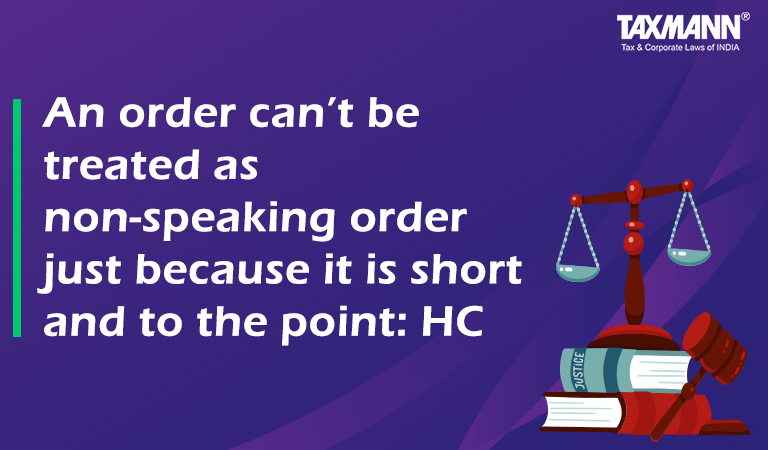An order can’t be treated as non-speaking order just because it is short and to the point: HC
- Blog|News|Income Tax|
- 2 Min Read
- By Taxmann
- |
- Last Updated on 3 January, 2022

Case Details: Muvendar Trust v. ITO - [2021] 133 taxmann.com 303 (Madras)
Judiciary and Counsel Details
-
- M. Sundar, J.
- T. Ramesh and S. Radhakrishnan for the Petitioner.
- N. Dilip Kumar, Sr. Standing Counsel for the Respondent.
Facts of the Case
Assessee was registered ‘Public Charitable Trust’. Its registration was cancelled CIT, and the benefit of section 12AA was declined. The assessee filed the writ petition challenging the cancellation order. It was contended by the assessee that the impugned order passed by the CIT was a non-speaking order.
High Court Held
The Madras High Court held that an order passed by the AO could not be said to be a non-speaking order. Two critical paragraphs in the order had captured the crux and gravamen of the disputed matter. Said paragraphs had clearly records the trajectory and the reason for not extending Section 12AA benefit to the assessee.
Thus, those two paragraphs by themselves and the rest of the order clarify that it is not a non-speaking order, and it may at best be a terse order. An order can be tersely eloquent; it cannot be construed as a non-speaking order unless it is laconic, not when it is epigrammatic or merely because it is terse.
In the instant case, the assessee’s case was scrutinised because its registration had been cancelled, and trust failed to upload registration certificate u/s 12AA despite repeated reminders and opportunities. Thus., the assessment order passed called for no interference in the writ petition when it recorded the crux and gravamen of the matter i.e. trust was not entitled to exemption since its registration has been cancelled.
Therefore, the assessee’s argument that the order was a non-speaking order becomes a non-starter, i.e., an argument that does not take off.
Disclaimer: The content/information published on the website is only for general information of the user and shall not be construed as legal advice. While the Taxmann has exercised reasonable efforts to ensure the veracity of information/content published, Taxmann shall be under no liability in any manner whatsoever for incorrect information, if any.

Taxmann Publications has a dedicated in-house Research & Editorial Team. This team consists of a team of Chartered Accountants, Company Secretaries, and Lawyers. This team works under the guidance and supervision of editor-in-chief Mr Rakesh Bhargava.
The Research and Editorial Team is responsible for developing reliable and accurate content for the readers. The team follows the six-sigma approach to achieve the benchmark of zero error in its publications and research platforms. The team ensures that the following publication guidelines are thoroughly followed while developing the content:
- The statutory material is obtained only from the authorized and reliable sources
- All the latest developments in the judicial and legislative fields are covered
- Prepare the analytical write-ups on current, controversial, and important issues to help the readers to understand the concept and its implications
- Every content published by Taxmann is complete, accurate and lucid
- All evidence-based statements are supported with proper reference to Section, Circular No., Notification No. or citations
- The golden rules of grammar, style and consistency are thoroughly followed
- Font and size that’s easy to read and remain consistent across all imprint and digital publications are applied



 CA | CS | CMA
CA | CS | CMA
